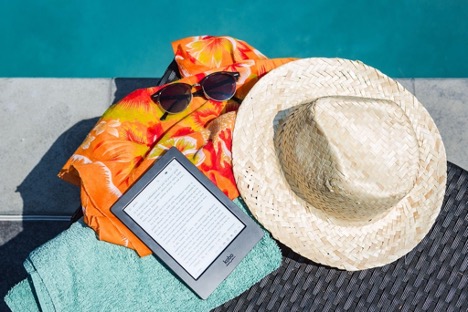Summer is well underway, which means longer days and a carefree lifestyle. However, the risk of working outside during hot weather is also high, especially as temperatures rise at the season’s peak. The enjoyment of the season shouldn’t come at the expense of your health. Therefore, it is highly recommended you stay aware of the potential hazards to your health.
There are several steps you can take to ensure you are protecting your skin, your hair, your eyes, and your overall health during the hottest months of the year. So without further ado, here are seven practices that will help you stay cool and prevent common health concerns, such as dehydration, bug bites, sunburn, and eye damage during the summer.
Staying Safe in the Summer
It is important to take things slowly during the summer. Being outdoors during extreme heat can be harmful to your health. So, it is ideal for reducing or eliminating tiring activities during mid-day hours or reschedule them for early morning or late evening—before 10 am and after 6 pm.
Furthermore, learn to identify the symptoms of heat exhaustion and heatstroke—
- headaches,
- a fast, strong/weak pulse,
- tiredness,
- chest pain/heartache,
- dizziness,
- heavy sweating,
- red hot skin,
- nausea, and
If you experience these symptoms, seek help immediately.
Also, drink plenty of water to stay hydrated, even if you don’t feel thirsty. At times of peak temperatures, it’s best to avoid alcoholic or caffeinated drinks as these can lead to dehydration.
Lastly, it is recommended to wear sunscreen to prevent sunburns. They can be painful and harmful to your skin long-term. Even if you don’t get burned, prolonged exposure to the sun can result in skin cancer.
Beyond High Temperatures
Foods
During higher temperatures, you should ideally eat cool or room-temperature, easy-to-digest foods like fruits or salads. Additionally, meat and dairy products shouldn’t be left outside too long. It would be best if you also steered clear from consuming foods that demand using your oven, as it can make it harder to keep your home cool.
Activities
Popular summer activities like water sports, camping, picnicking, backpacking, playing with fireworks, and boating can cause a higher likelihood of accidents. So, proceed with proper instruction when indulging in such activities
Vehicles
The temperature inside vehicles can grow unsafe during summer. So, to be on the safer side, don’t sit in a hot car for more than a few minutes and never leave pets or children unattended in a vehicle on a hot day.
Indoors
If your house isn’t air-conditioned properly, consider finding an air-conditioned space to spend time during extreme heat periods. For example, the library, mall, or movie theatre are great places to avoid the heatwave. In some cities, you can find “cooling centers” or air-conditioned public areas.
Recommended Summer Gear
Like the old Swedish adage goes, ‘There’s no such thing as bad weather, only bad clothes.’ When the temperature outside rises, you might be tempted to slip into those tank tops and shorts or anything else that will give your skin some breathing room.
However, it is ideal for wearing loose-fitting, lightweight, light-colored clothing that offers more coverage to stay cooler while protecting your skin from the sun. The most comfortable fabrics include linen, cotton, and rayon as they are breathable and allow for air circulation while protecting your skin from absorbing heat and UV rays.
You might also want to wear a wide-brimmed hat. It will protect your scalp, your face, and your eyes. Check out Oprah’s best 25 list of sun hats for recommendations. To protect your eyes further, stick to a shade to avoid direct sunlight. Invest in a high-quality pair of sunglasses like Oakley’s for sports, or try out Tom Ford sunglasses for trendy streetwear.
Keep an Eye Out for Those at Risk
Summer demands everyone to be careful when going out in the sun. Nevertheless, there are people out there who are far more at risk of summer-related issues than you are. This includes your neighbors and elderly family members, particularly those who live alone. Ensure you check on them regularly and offer them the care they need.
Infants and children are also more prone to heat-related illnesses and complications and should be kept out of direct sunlight during extreme heat hours. Ensure they have sunscreen, an umbrella or hat, and plenty of water in hand.

